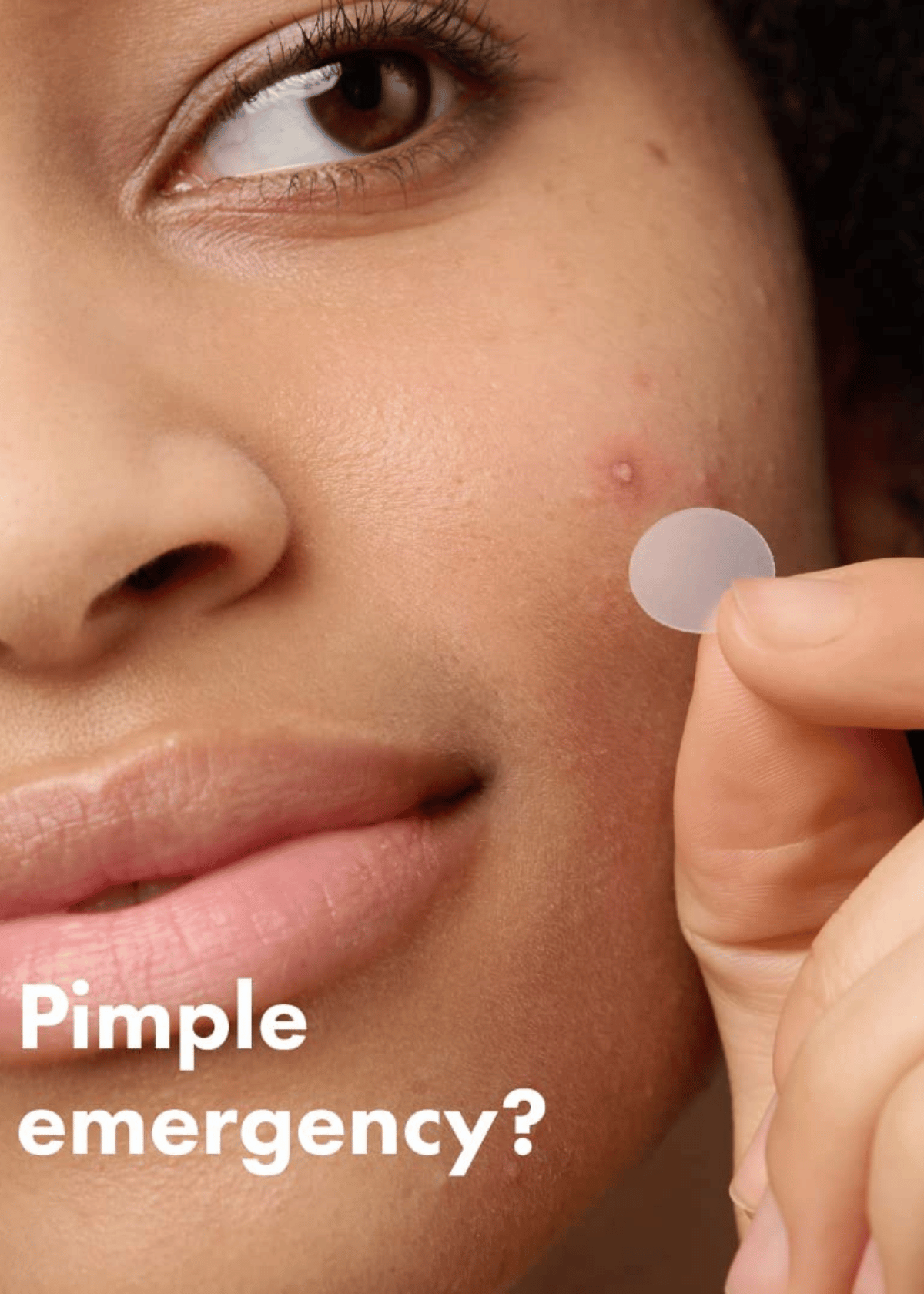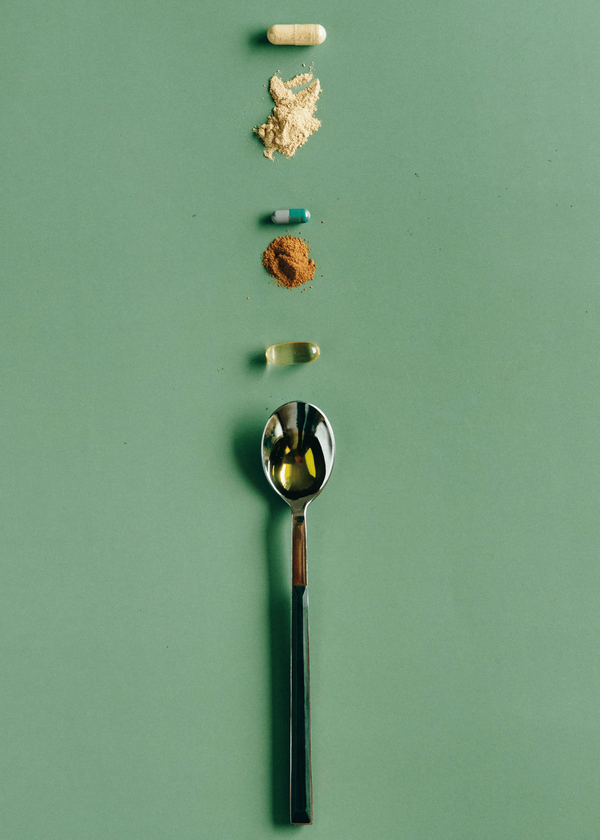Key Takeaways:
- Identifying the best probiotic for toddlers involves understanding the specific strains that benefit children's health.
- Probiotic supplements can support gut health, enhance immune function, and may alleviate symptoms of certain health conditions in toddlers.
- Choosing the right probiotic requires considering the form, such as powders, gummies, or liquid drops, and ensuring the absence of harmful additives.
Probiotics have become a buzzword in the realm of health and wellness, and for good reason. These friendly bacteria play a crucial role in maintaining a healthy gut lining, supporting immune health, and even preventing respiratory tract infections. When it comes to our little ones, the importance of gut health cannot be overstated. In this comprehensive guide, we'll explore the best probiotics for toddlers, diving into the world of probiotic strains, supplements, and the benefits they can offer for your child's health.
Understanding Probiotics and Children's Health
Probiotics are live microorganisms that, when administered in adequate amounts, confer a health benefit on the host. For toddlers, these benefits are multifaceted, ranging from bolstering the immune system to aiding in the management of irritable bowel syndrome (IBS) symptoms. The gut flora of a child is delicate and can be influenced by various factors, including diet, environment, and antibiotic use.
The Role of Probiotic Strains in Toddler Health
Not all probiotics are created equal, especially when it comes to the needs of toddlers. Specific probiotic strains, such as Lactobacillus reuteri and Lactobacillus rhamnosus GG, have been studied for their positive effects on children's health. These strains can help maintain a balance of good bacteria, combat bad bacteria, and produce short-chain fatty acids that are essential for a healthy gut.
Probiotic Supplements: A Boon for Immune Health
Probiotic supplements can be a convenient way to ensure your toddler gets their daily dose of beneficial bacteria. These supplements are designed to support gut health and enhance immune function. When selecting a probiotic supplement, it's important to look for one that is tailored to the age group of your child and free from artificial sweeteners and additives.
The Connection Between Probiotics and Respiratory Tract Infections
Respiratory tract infections are common in young children. Research suggests that certain probiotic strains can help reduce the incidence and severity of these infections by boosting immune support. This is particularly beneficial for toddlers, as their immune systems are still developing.
Liquid Drops: An Easy-to-Administer Form
For some toddlers, liquid drops may be the easiest form of probiotic to administer. These drops can be added to drinks or food and are often formulated without artificial sweeteners or additives. When choosing liquid drops, look for those that contain strains known to support young children's health.
Probiotic Gummies: A Kid-Friendly Option
Probiotic gummies are a popular choice for parents due to their convenience and kid-friendly appeal. These gummies often contain essential vitamins and are formulated to be gluten-free. However, it's crucial to check the label for any artificial additives that may be harmful to your child's health.
Probiotic Powders: Versatility for Toddlers
Probiotic powders offer flexibility in how they can be administered to toddlers. These powders can be mixed into foods or drinks, making them an ideal choice for picky eaters. When selecting a probiotic powder, ensure it contains strains that are beneficial for children's probiotics and is free from any allergens.
Fermented Foods: A Natural Source of Probiotics
Incorporating fermented foods into your toddler's diet is a natural way to introduce probiotics. Yoghurt drinks, for example, are a tasty option that can provide probiotic bacteria and support gut health. It's important to choose products that are suitable for the toddler age group and free from high levels of sugar.
The Impact of Probiotics on IBS Symptoms in Toddlers
IBS can be a challenging condition to manage, even for toddlers. Probiotic supplements have shown promise in alleviating IBS symptoms by restoring balance to the gut microbiome. It's essential to consult with a healthcare provider before starting any probiotic regimen for a disease or health condition.
Daily Probiotic Supplement: A Routine for Health
Establishing a routine with a daily probiotic supplement can help maintain your toddler's immune function and gut health. Consistency is key when it comes to probiotics, as regular intake is necessary to sustain the benefits of friendly bacteria.
Antibiotic Associated Diarrhea and Probiotics
Antibiotic use can disrupt the delicate balance of gut flora in toddlers, leading to antibiotic-associated diarrhea. Probiotics for kids can help restore this balance and reduce the risk of diarrhea. It's important to choose a probiotic that is specifically designed for children and has been clinically tested for safety.
Probiotic Strain Diversity and Its Importance
When we talk about children's probiotics, it's crucial to understand that not all probiotics are created equal. The term "probiotic strain" refers to the specific types of bacteria that are beneficial to our health. Each strain has its own unique role and benefits. For instance, some strains are excellent at combating harmful bacteria, while others are known for their ability to support the digestive system. In toddlers, a diverse array of probiotic strains can help ensure a well-rounded approach to maintaining their gut health, which is a cornerstone of a child's health.
Moreover, research suggests that a variety of probiotic strains can contribute to the production of short chain fatty acids (SCFAs) in the gut. These SCFAs play a significant role in gut health, including supporting the immune system, reducing inflammation, and providing energy to the cells lining the colon. By choosing a probiotic supplement that offers a range of strains, parents can help their toddlers get the full spectrum of benefits that probiotics have to offer, setting the stage for a healthier gut environment.
Gluten-Free Probiotics: Catering to Sensitive Tummies
For parents of toddlers with gluten sensitivities or celiac disease, finding a gluten-free probiotic is a top priority. Gluten-free probiotics ensure that children receive the benefits of probiotics without the risk of gluten exposure, which can cause serious health issues in sensitive individuals. These probiotics are carefully formulated to avoid any gluten-containing ingredients, providing peace of mind to parents who are vigilant about managing their child's health and dietary restrictions.
In addition to being safe for children with gluten intolerance, gluten-free probiotics often come with the added benefit of being free from other common allergens. This makes them an excellent choice for toddlers with multiple dietary sensitivities. By opting for a gluten-free probiotic, parents can support their child's digestive health and immune system without compromising their strict dietary needs. It's a win-win situation that ensures the child's health is nurtured with the right balance of beneficial bacteria.
Are Probiotics Safe for Toddlers?
Safety is a top concern for parents when it comes to supplements. Probiotics are generally considered safe for toddlers, but it's important to choose products that are specifically designed for this age group and have been rigorously tested.
The Long-Term Benefits of Probiotics
Introducing probiotics during toddlerhood can have long-term benefits that extend into young adulthood. A healthy gut microbiome established early in life can contribute to overall well-being and may prevent certain health conditions later on.
Choosing the Right Probiotic for Your Toddler
Selecting the best probiotic for your toddler involves considering the specific strains, the form of the supplement, and any additional ingredients. It's also important to consult with a pediatrician to ensure the probiotic is appropriate for your child's health needs.
Probiotics and Essential Vitamins: A Synergistic Relationship
Some probiotic supplements for toddlers also contain essential vitamins, creating a synergistic effect that can enhance immune support. Look for products that combine probiotics with vitamins that are important for your child's development.
The Importance of a Healthy Gut Lining
A healthy gut lining is crucial for nutrient absorption and immune function. Probiotics can help maintain this lining by promoting the growth of good bacteria and combating harmful bacteria.
Probiotics and the Developing Immune System
The immune system of toddlers is still developing, making it more susceptible to infections. Probiotics can play a role in strengthening immune function and helping to protect against disease.
The Role of Lactobacillus Acidophilus in Toddler Probiotics
Lactobacillus acidophilus is one of the most commonly used probiotic strains in children's supplements. It has been shown to support gut health and may help prevent digestive issues.
Probiotics and Young Adulthood: A Foundation for Health
The habits established in toddlerhood can set the stage for health in young adulthood. Introducing probiotics early can help create a foundation for a healthy gut microbiome that lasts a lifetime.
Artificial Additives: What to Avoid in Probiotic Supplements
When choosing probiotics for your toddler, it's crucial to avoid products with artificial additives that could be harmful. Always read the label to ensure the supplement is clean and safe for your child.
The Future of Probiotics in Child's Health
As research continues to evolve, the role of probiotics in child's health is becoming increasingly clear. These beneficial bacteria have the potential to make a significant impact on the well-being of toddlers and beyond.
How We Choose
Given the vast array of probiotic options on the market, determining the most suitable one for individual needs can be challenging. Our team has conducted extensive research on numerous products to identify the top five probiotics for toddlers. This effort is aimed at making the selection process for consumers easier, enabling them to find the appropriate probiotics without having to guess or waste money on something that won't work.
We hope you find your next best buy from the list below! Each product was independently selected by our editors. BlakesBestBuys may collect a share of sales or other compensation from the links on this page if you decide to buy something (that's how we stay in business). Enjoy finding your next best buy!
The Top Probiotics For Toddlers On The Market
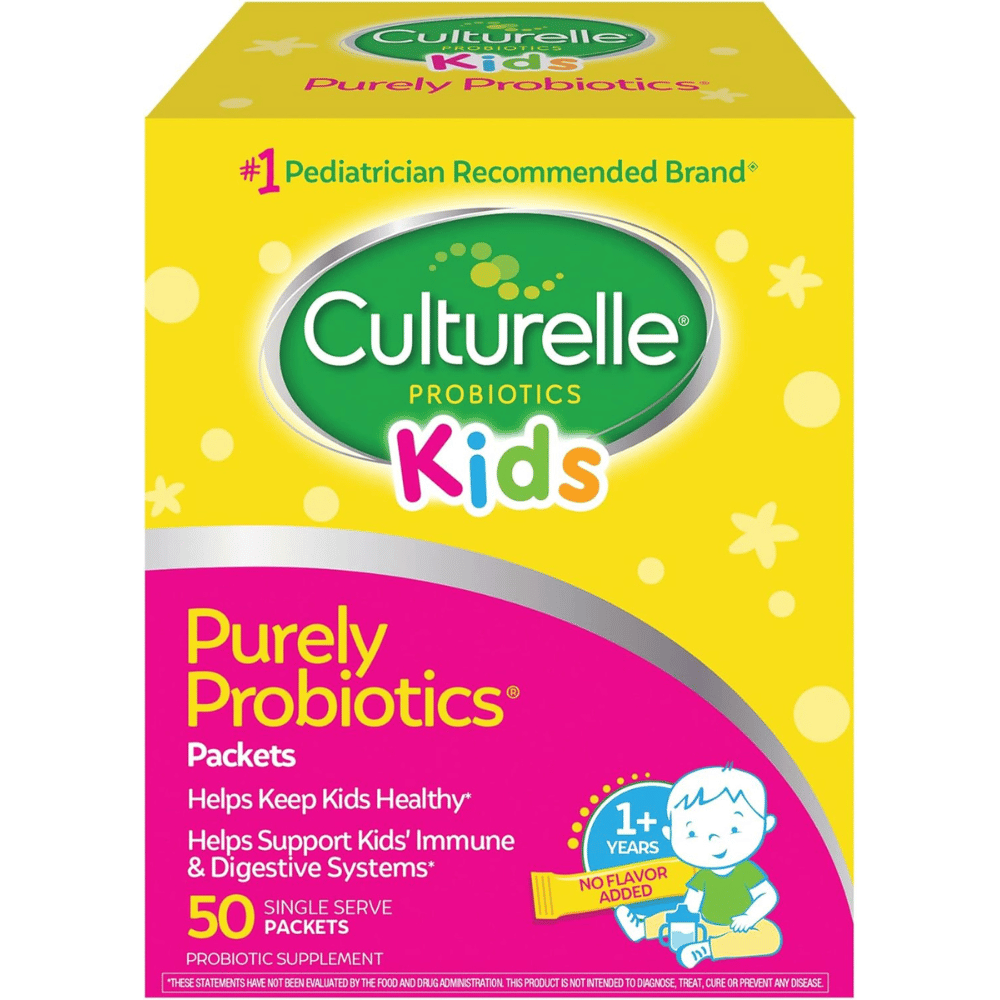
Best Probiotic For Toddlers Aged 1 Plus
Culturelle Kids Daily Probiotic Packets
What We love About It
Culturelle is a well-known brand that offers one of the best probiotics for kids. Their daily probiotic packets contain Lactobacillus rhamnosus GG, a strain extensively studied for its positive impact on gut health. These packets are convenient, flavorless, and can be easily mixed with food or drinks, making them a great choice for picky eaters.
Why Culturelle Kids Purely Probiotics Packets Stands Out
Culturelle's commitment to purity and potency makes it a top choice for parents. Culturelle Kids is a flavorless probiotic supplement formulated with 5 billion FUs (colony-forming units) of the most clinically studied LGG probiotic, proven to boost digestive & immune support. Additionally, these packets are free from common allergens, making them suitable for children with dietary restrictions.
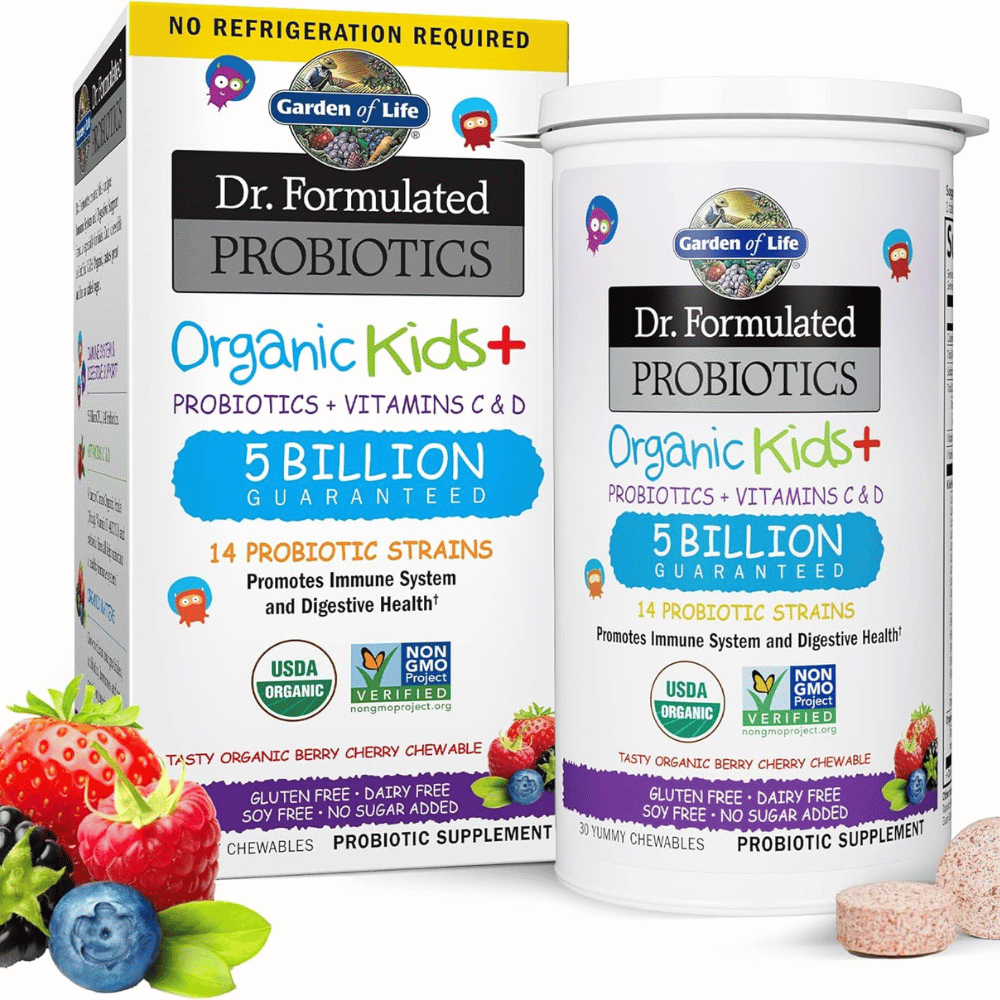
Best Organic Chewable Probiotic For Toddlers
Garden of Life Dr. Formulated Probiotics Organic Kids+
What We Love About It
This organic probiotic for toddlers supports immune system and digestive health with 5 billion CFU and 14 probiotic strains, prebiotics and whole food vitamins C and D, all in one yummy chewable tablet that is gluten free, dairy free and soy free.
Why Garden of Life Dr. Formulated Probiotics Organic Kids+ Stands Out
This prebiotic supplement contains organic acacia fiber and whole cranberry - prebiotics which help good bacteria in the gut thrive. Dr. Formulated Probiotics for Kids is certified organic, non-GMO, gluten free and vegetarian.
The Organic Advantage
Choosing an organic probiotic like Garden of Life's chewable tablets ensures that your child is getting a product free from harmful pesticides and chemicals. This can be particularly important for parents looking to maintain a natural and organic diet for their children.
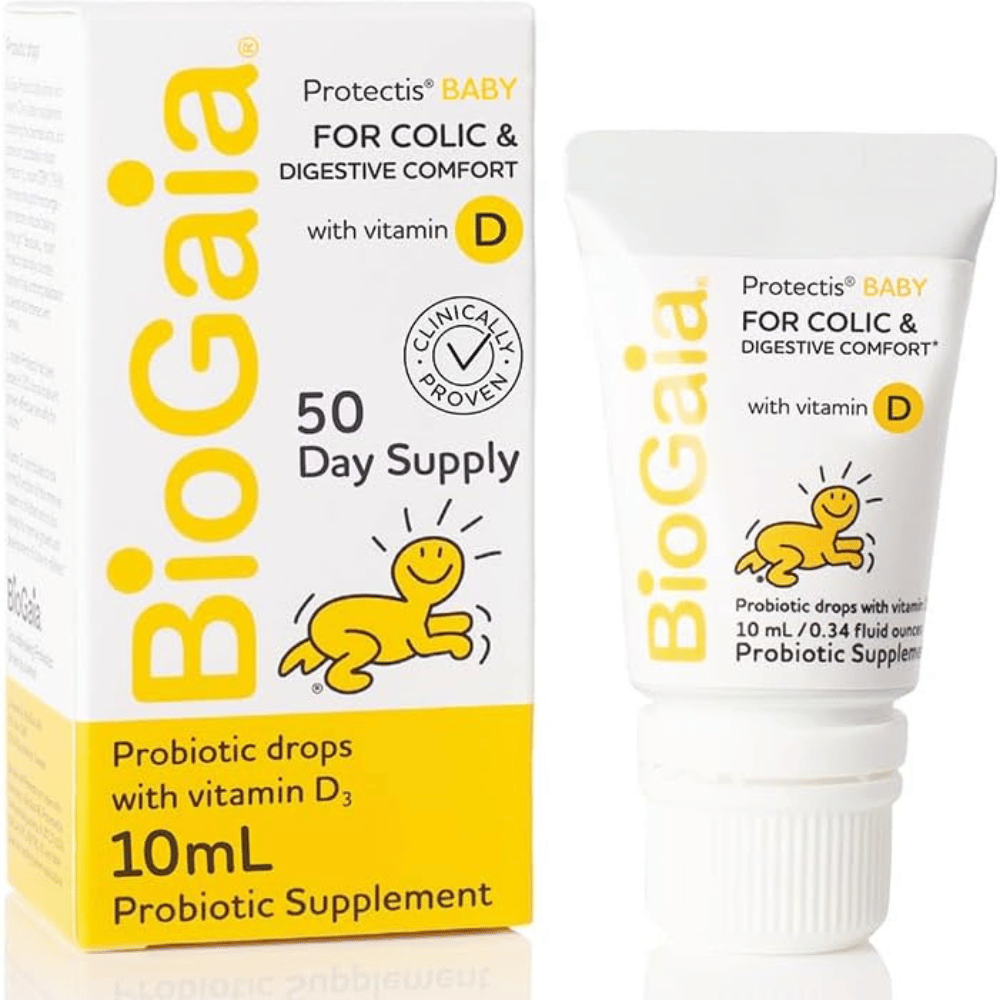
Best Probiotic For Toddlers And Infants Drops
BioGaia Protectis Baby Probiotic Drops
What We Love About It
BioGaia Protectis drops are a unique form of children’s probiotics that are easy to administer. They contain Lactobacillus reuteri Protectis, a probiotic strain that has been shown to help reduce colic symptoms and promote a healthy balance of intestinal flora.
Just 5 drops daily with an easy dropper tube contains 100 million live Lactobacillu reuteri probiotics which is clinically shown to reduce crying and fussing in a colicky infant. These drops can be a lifesaver for parents dealing with the challenges of a colicky baby.
Why BioGaia Protectis Baby Probiotic Drops Stands Out
The dropper format of BioGaia Protectis makes it incredibly easy to ensure your toddler gets their daily dose of probiotic supplements. You can add the drops to breast milk, formula, or any other suitable liquid, making it versatile for various feeding situations.
This probiotic for kids contains 400 IU vitamin D3, the average daily requirement. It contains no flavor or smell, non-GMO, no parabens, BPA free, vegan, vegetarian, free from milk and dairy, egg, peanuts, tree nuts, fish, shellfish, and soy.
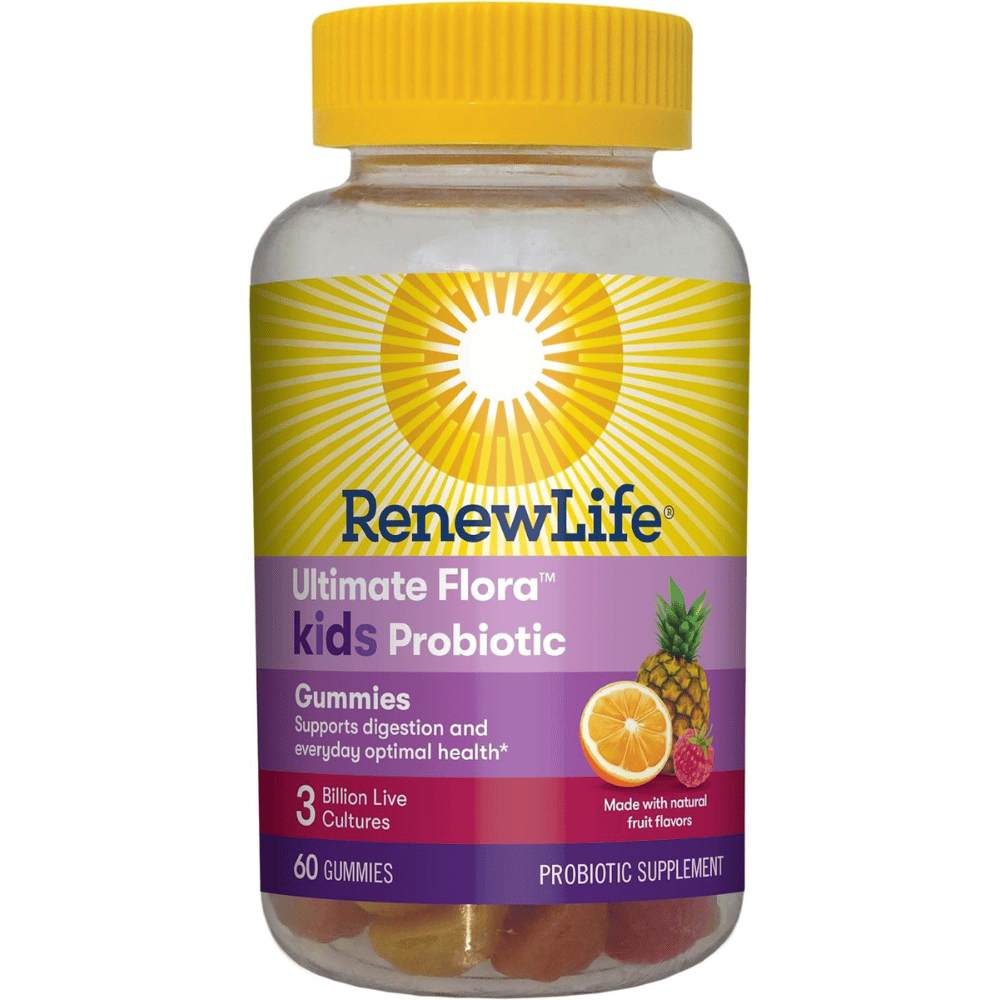
Best Probiotic For Toddlers Gummy
Renew Life Ultimate Flora Kids Probiotic Gummies
What We Love About It
This daily probiotic for toddlers is made with a scientifically studied strain of B. coagulans in delicious fruit-flavored probiotic gummy supplements
It helps support overall health and optimal digestion in kids. Probiotic kids supplement includes 3 billion cultures and a scientifically studied strain to promote optimal digestion in children.
Why Renew Life Ultimate Flora Kids Probiotic Gummies Stands Out
Renew Life Kids Probiotic Gummies are kid-friendly pineapple, orange and raspberry-flavored gummies that make it easy to provide your little ones with health-supporting probiotics to help them thrive. Made with a scientifically studied strain of B. coagulans, each probiotic gummy is infused with 3 billion cultures to promote overall health and optimal digestion in children.
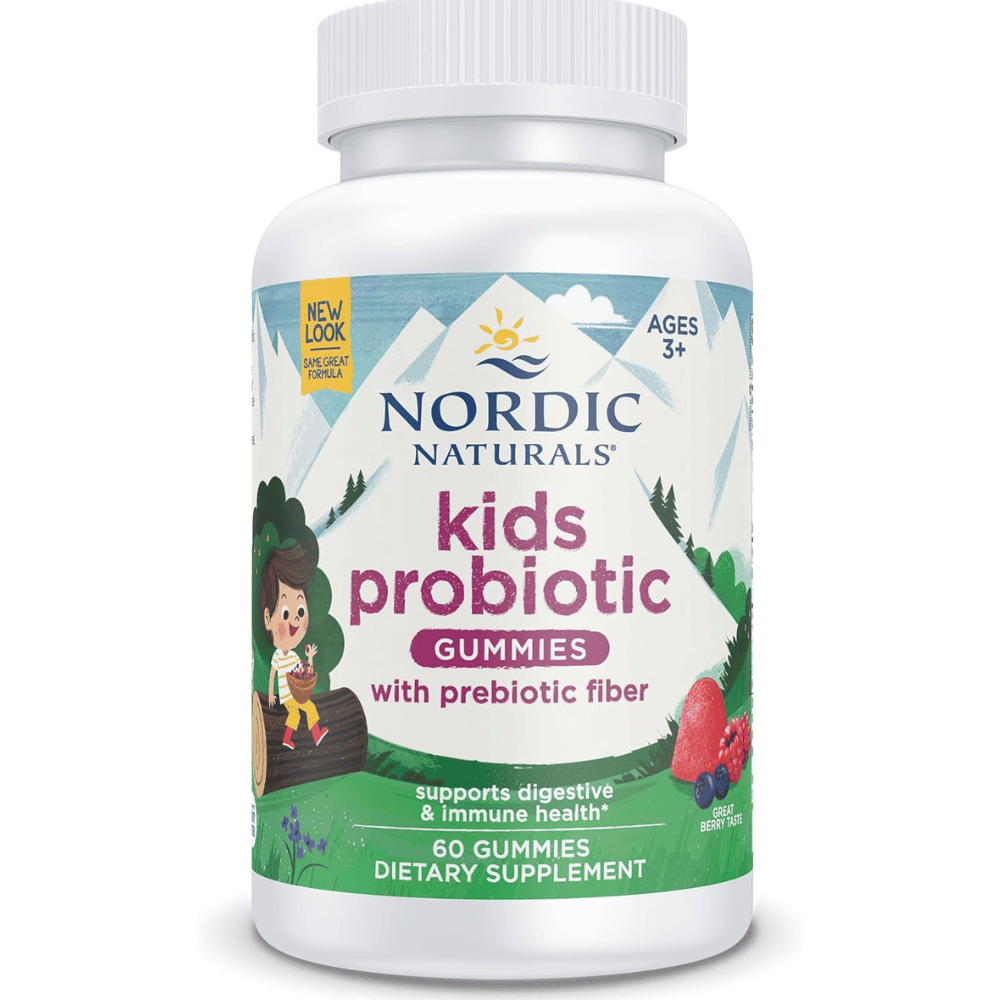
Best Value Probiotic For Toddlers
Nordic Naturals Kids Nordic Flora Probiotic Gummies
What We Love About It
Nordic Naturals Flora Probiotics for toddlers provide a synergistic blend of probiotics & prebiotic fiber to help establish and maintain healthy digestive balance with 1.5 billion CFU per serving.
This go-anywhere gummy carries a research-supported amount of good probiotic bacteria perfect for smaller tummies. No refrigeration is required. This yummy Merry Berry Punch flavor is for ages 3+.
Why Nordic Naturals Kids Nordic Flora Probiotic Gummies Stands Out
Nordic Naturals has always been at the forefront of sustainable & ethical practices in the natural products industry.
The active culture in this probiotic for toddlers is bacillus coagulans. Other Ingredients: organic cane sugar, soluble tapioca fiber, purified water, pectin, citric acid, natural flavor, fumaric acid, sodium citrate dihydrate, fruit and vegetable juice (color).
Summary
Probiotics offer a wealth of benefits for toddlers, from supporting a healthy digestive system to boosting immune function.
The 5 probiotics we have reviewed here are among the best options available to help maintain your child's gut health. When choosing a probiotic for your toddler, consider factors like probiotic strains, CFU count, dietary restrictions, and consult with your child's pediatrician for personalized advice.
FAQ’S
Can toddlers take probiotics daily?
Yes, toddlers can generally take probiotics daily, but it's important to follow the dosage instructions on the product label and consult with your child's pediatrician for personalized guidance.
Are there any side effects of giving probiotics to toddlers?
Probiotics are generally safe for toddlers, but some children may experience mild side effects such as gas or bloating. If you notice any adverse reactions, consult with your child's pediatrician.
How long does it take for probiotics to work in toddlers?
The time it takes for probiotics to have an effect can vary depending on the individual child and the specific probiotic strain. Some parents may notice improvements in digestive issues within a few days, while for others, it may take several weeks to observe the benefits.
What probiotics are good for toddlers taking antibiotics?
The 2 types of probiotics recommended to prevent pediatric antibiotic-associated diarrhea are Lactobacillus rhamnosus GG and Saccharomyces boulardii.
Do probiotics help toddlers poop?
Probiotics help create a healthy microbiome in the GI tract that helps the poop slide out easier. Prebiotics feed the probiotics so they stay healthy and continue doing their job. Using both probiotics and prebiotics helps keep your child's microbiome healthy which relieves constipation and other GI issues.
Can toddlers take probiotics everyday?
Probiotics, which contain various types of live bacteria, won't cause harm in most healthy kids. However, they should not be given to kids who are immunocompromised or who have serious illnesses. Check with your doctor before starting probiotics.
Do probiotics help toddlers from getting sick?
Probiotics may help relieve acute constipation, colic, and acid reflux in healthy infants and children. They may also help prevent secondary infections and diarrhea in kids using antibiotics. Probiotics may even help prevent eczema and allergies in some children.
How do I choose probiotics for my child?
People choosing a probiotic for their child should consider easy-to-eat options such as gummies, yogurts, or melts. They should also look for products with at least 1 billion CFU and clear labeling of ingredients, dosage, and use instructions.
Should kids take probiotics in the morning or at night?
Taking them on an empty stomach is a good idea for most probiotics as it improves their survival rates through stomach acid. Many people take them first thing in the morning after waking up—about 30 minutes before breakfast or 2-3 hours after your last meal in the evening before bed. The key is consistency.
What are the symptoms of lack of probiotics?
The following can be signs of a gut bacteria imbalance:
- Autoimmune problems, such as thyroid issues, rheumatoid arthritis and type 1 diabetes.
- Digestive issues, such as irritable bowel syndrome, constipation, diarrhea, heartburn or bloating.
- Sleep issues.
- Skin rashes and allergies.
- Sugar cravings.
Best Probiotic For Toddlers
Looking for the best probiotic for toddlers? We’ve spent dozens of hours reading thousands of reviews on Amazon from verified customers to find the perfect probiotic for your toddler’s needs.


